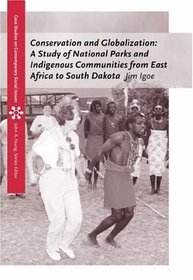Search -
Conservation and Globalization: A Study of National Parks and Indigenous Communities from East Africa to South Dakota
Conservation and Globalization A Study of National Parks and Indigenous Communities from East Africa to South Dakota
Author:
This book makes current issues in political ecology and the question of globalization accessible to undergraduate students, as well as to non-academic readers. It is also empirically and theoretically rigorous enough to appeal to an academic audience. CONSERVATION AND GLOBALIZATION opens with a discussion of these two broad issues as they relat... more »
Author:
This book makes current issues in political ecology and the question of globalization accessible to undergraduate students, as well as to non-academic readers. It is also empirically and theoretically rigorous enough to appeal to an academic audience. CONSERVATION AND GLOBALIZATION opens with a discussion of these two broad issues as they relat... more »
ISBN-13: 9780534613174
ISBN-10: 0534613179
Publication Date: 8/29/2003
Pages: 200
Rating: ?
ISBN-10: 0534613179
Publication Date: 8/29/2003
Pages: 200
Rating: ?
0 stars, based on 0 rating
Publisher: Wadsworth Publishing
Book Type: Paperback
Members Wishing: 0
Reviews: Amazon | Write a Review
Book Type: Paperback
Members Wishing: 0
Reviews: Amazon | Write a Review
Genres:
- Nonfiction >> Social Sciences >> Anthropology >> General
- Nonfiction >> Social Sciences >> Sociology >> General
- Outdoors & Nature >> Environment >> Conservation
- Outdoors & Nature >> Conservation >> General
- Outdoors & Nature >> Field Guides >> Regional >> Africa




